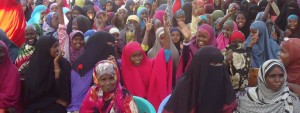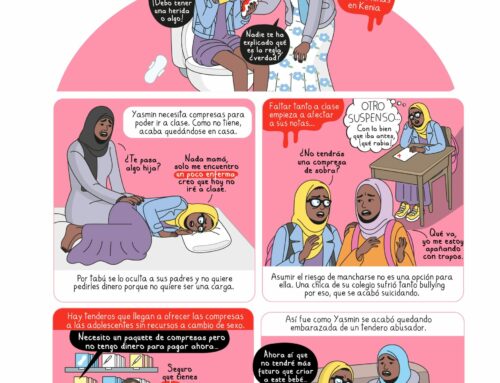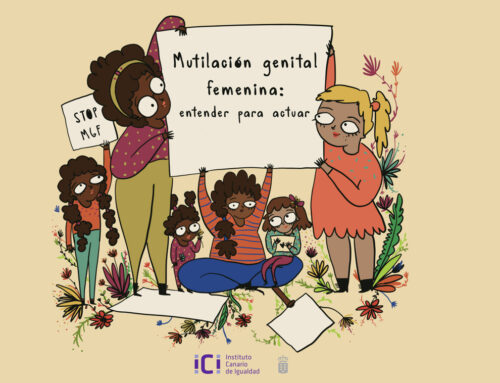By Zamzam Abdi Tatu
Enlightened Somali mothers and Female Genital Mutilation (FGM) survivors are progressively eradicating the practice in their own families by protecting their daughters and mobilizing young mothers in Nairobi.
FGM is performed for a variety of reasons – preserving virginity, improving marriage prospects or promoting cultural identity – many of which are based on untrue myths which keep the practice going. On average, girls are cut between the ages of five and eight, with a trend moving towards cutting at an even younger age. The cutting is predominantly practiced by non-medically trained women.
Despite the Kenyan government signing into law a historic anti-FGM bill in October last year, FGM is still widely practiced by mainly the Somali, Kisii, Maasai and Kalenjin communities in Kenya.
The law reads in part that “Anyone caught circumcising a girl will from now henceforth be considered a criminal. Should the girl die from this act, mainly from bleeding, [the culprit] will be considered a murderer and is liable to life imprisonment.”
Yet, incidences of local and traditional leaders reprimanding law enforcement officers seeking to arrest circumcisers have been on the increase soon after the Anti-FGM bill was passed. In the same breathe, success of various anti-FGM campaigns have also been limited by non-cooperation on the part of the local community where the ‘rite ‘is carried out in secrecy.
Experts believe that unofficial and concealed continuation of FGM is problematic because it increases the many risks—including infection, complications during childbirth, and bleeding to death—that are already associated with the practice of female circumcision.
“Legislation alone will not to curb the practice , an overall curriculum change in both secular and religious institutions , grass root education and victim support system is required to further influence the attitude of the young vulnerable girls and mothers” says Hani Abdi, founder of Mom and Me Forum which targets young Somali mothers at residential areas in Nairobi.
Counseling has helped the mother of the 4-year-old girl deal with the trauma and emotional breakdown she suffered after forcefully undergoing the cut. After taking a cold shower in a makeshift bath room with 7 of her close relatives, overpowering fear and uncertainty compounded by piercing cries from her friends left the then 8-year-old numb and insensitive to the events around her.
All that is stuck to my memory, recalls Ms Abdi, is the penetrating look of the circumciser and the strong arms of her heartless helpers. “I think I let out a shaky yelp and the last cry as a woman before concoctions of sugar, egg yolk and traditional herbs were poured onto the wound” describes the home maker.
The experience left her withdrawn, emotionally unstable and less of a woman, but support from her now husband helped her confront and overcome these challenges. With her renewed energy and commitment to rid the archaic practice off her daughters’ generation, she formed Mom and Me Forum together with a friend in 2010.
The deep rooted harmful cultural practice has a prevalence rate of 98 per cent among the two million Somalis in Kenya. This is according to the Kenya Demographic Health Survey (KDHS) 2008/2009.
Mom and Me Forum is a social group that educates young Somali mothers and their children through capacity building and psychosocial support which is rarely addressed by anti-FGM outfits.
Monthly meetings at her home allow the 300 members to organize workshops, dinner parties and outreach programs that are mainly funded by well wishers and the forum members. The members also produce tie and dye based garments for both men and women that partly sustain their operation.
Marakwet East Member of Parliament Linah Jebii Kilimo, and an anti-FGM campaigner said that extensive community mobilization and sensitization is key to the success of anti-FGM programs. She also noted illiteracy and poverty are the twin factors that allow the dangerous practice to thrive.
“Low literacy levels and poverty are some of the contributors to the continued practice of FGM, this are some of the underlying problems that the government is jointly addressing in its fight against FGM” explained Ms Kilimo.
Dekha Ahmed participated in the group’s pre-ramadhan Eastleigh forum and has since been a regular at their community empowerment programs. Ms Ahmed says she “feels Mom and Me has allowed us openly discuss our sexual health and discomforts caused by mutilation of the female genitalia among other psychological impacts”.
“I lost a part of me, the woman in me, I vow to end the practice with my generation and save my daughter and my future grand children from mutilation”, opined the 30-year-old.





Deja tu comentario